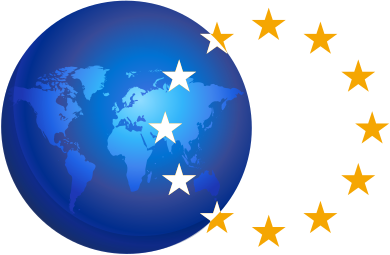His Excellency
High Representative of the European Union/Vice-President
Josep Borell
Dear Mr. Borrell,
As a Dutch grassroots organization and as citizens of the Kingdom of the Netherlands and therefore of the European Union, we deplore the EEAS statement on the “strikes on the city of Ganja”, co-signed by the EEAS spokespersons on 17 October 2020. It is a pity that this highly biased statement fails to objectively reflect the reality of the situation on the ground in its entire context.
For more than three weeks the capital of the Republic of Artsakh/Nagorno Karabakh, Stepanakert, as well as almost all the towns and villages in Nagorno Karabakh/Artsakh have been under the direct attack of the Azerbaijani forces, openly backed by Turkey, both militarily and politically. It has been confirmed on the highest level, including by the President of France Emmanuel Macron that with the help of Turkey Azerbaijan has been deploying terrorist fighters from Syria and elsewhere against the indigenous Armenian population of Nagorno Karabakh/Artsakh.
The Amnesty International has identified and confirmed that the Azerbaijani army has been using cluster munitions against the civilian population of Nagorno Karabakh from the first days of this brutal war. The use of these cluster bombs is banned under international humanitarian law.
Mr. Borrell, we were closely following the debate in the Plenary of the European Parliament on 7. October with your participation where the overwhelming majority of the MEPs expressed their concern over these war crimes against the Armenian population, including the Genocidal intentions of the Azerbaijani-Turkish tandem backed by jihadists. It was made clear who the aggressor is, namely Azerbaijan and Turkey. All this happened before the developments in Ganja.
We would therefore like to ask you the following questions:
– What conclusions did you draw after the Plenary sessions of the European Parliament? Why has the EEAS failed to publicly condemn Turkey’s role in this conflict and the deployment of jihadists?
– Why has the EEAS remained silent on the fact that for more than three weeks the cities and towns in Nagorno Karabakh have been being bombarded to the heap of a rubble and more than 60 percent of the indigenous civilian population has been displaced?
– Why did the EEAS suddenly become direct and did not hesitate to express regret when one of the cities of the aggressor was hit, weeks after Azerbaijan unleashed this brutal war?
– Why is the EEAS still silent on the proven use of prohibited cluster bombs against the civilian population of Nagorno Karabakh?
– And finally, why does the EEAS issue a lukewarm statement on the suffering of the people of Nagorno Karabakh without specifying who causes this suffering? Mr. Borrell, applying double standards to human suffering or classifying it based on the presence or absence of oil/ gas pipelines as well as business transactions is not something the foreign policy of the EU can be proud of. We, as European citizens, certainly are not proud of it. This is not the type of the European solidarity the founding fathers of the European community had in mind. We do believe in the European idea and that the EU also stands for universal human rights and values. Please do not hollow them, for this undermines the European project in the first place.

